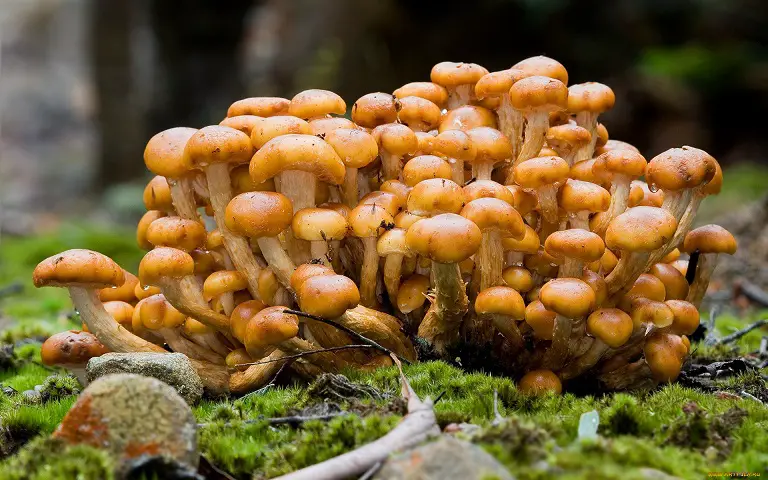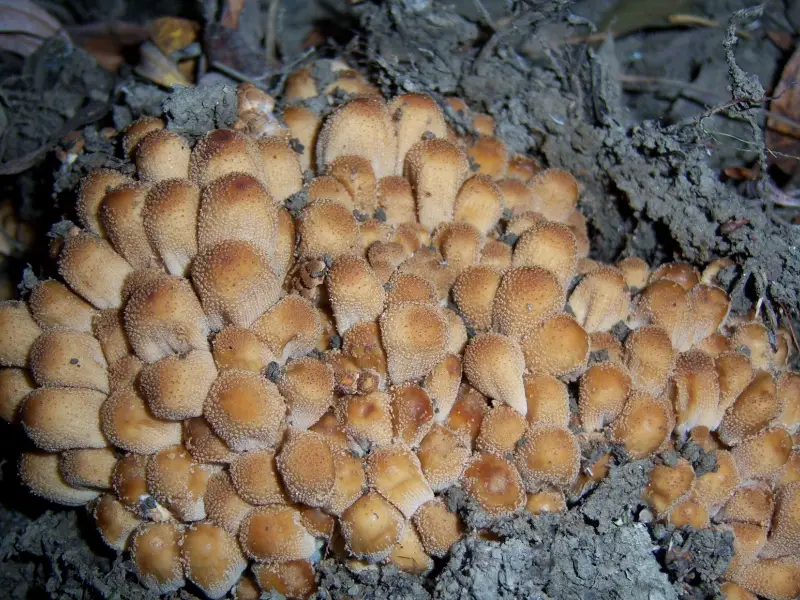Mushrooms are diverse organisms, with varying shapes, sizes, colors, and flavors. They have a long history of use in food, medicine, and spiritual practices. Some mushrooms, known as “magic mushrooms” or “shrooms,” contain psychoactive compounds that can profoundly affect perception, mood, and cognition. Despite their potential benefits, the legality and safety of magic mushrooms have been subjects of controversy.
Today we’ll explore your question Are Mushrooms Legal in Texas in comprehensive way. We’ll provide background information on mushrooms, their effects, and their general legal status. Additionally, we’ll detail specificlaws and penalties related to mushrooms in Texas, comparing them with other jurisdictions. Finally, we’ll examine current trends and developments in Texas regarding mushroom use, attitudes, and potential reform efforts. By the end, you’ll have a comprehensive understanding of mushroom legality in Texas and insights into future prospects for this topic.

Are Mushrooms Legal in Texas? A Comprehensive Guide
What are mushrooms and why are they illegal?

Mushrooms are the fruiting bodies of fungi, which are a diverse group of organisms that are neither plants nor animals. Fungi are decomposers, meaning they break down organic matter and recycle nutrients in the environment. Some fungi form symbiotic relationships with plants, animals, or other fungi, while others are parasitic or pathogenic, causing diseases or infections. Fungi can reproduce sexually or asexually, and produce spores that can travel through the air, water, or soil, and germinate under suitable conditions.
There are over 100,000 known species of fungi, and possibly millions more that have not been discovered yet. Among them, there are about 200 species of mushrooms that contain psychoactive compounds, mainly psilocybin and psilocin. These compounds act on the serotonin receptors in the brain, causing changes in perception, emotion, and cognition. The effects of mushrooms vary depending on the dose, the individual, the setting, and the type of mushroom.
Some common effects include:
- Enhanced sensory awareness, such as seeing vivid colors, patterns, or shapes, hearing sounds more clearly, or feeling textures more intensely.
- Altered sense of time, space, and self, such as feeling connected to nature, other beings, or the universe, having out-of-body experiences, or losing the sense of ego or identity.
- Emotional changes, such as feeling euphoria, joy, love, gratitude, awe, or peace, or experiencing fear, anxiety, sadness, anger, or paranoia.
- Cognitive changes, such as having insights, revelations, or visions, accessing memories or subconscious thoughts, or experiencing confusion, delusions, or hallucinations.
The effects of mushrooms are influenced by factors such as dosage, potency, individual metabolism, tolerance, and expectations, typically lasting 4 to 6 hours but potentially longer. Risks and side effects may include nausea, vomiting, diarrhea, muscle weakness, drowsiness, dizziness, headache, increased heart rate, blood pressure, temperature, and psychological distress. Despite these risks, mushrooms are not physically addictive and have a low potential for overdose or fatal poisoning.
Throughout history and across cultures, mushrooms have served various purposes. Evidence of their use dates back to 10,000 BCE, with depictions found in rock paintings and artifacts worldwide. Indigenous cultures, including the Mazatecs, Huichols, Nahuas, Mixtecs, Koryaks, Chukchi, and Bwiti, have utilized mushrooms for religious, ceremonial, or healing practices, attributing sacred or divine properties to them.
However, mushrooms have also faced persecution and prohibition. In the 16th century, Spanish conquistadors and missionaries banned their use in Mexico, deeming them pagan practices. In the 20th century, the psychedelic movement sparked interest in mushrooms, along with LSD, mescaline, and DMT, leading to government and media backlash. In 1971, the UN classified psilocybin and psilocin as Schedule I substances, leading to global prohibition and legal consequences for possession, cultivation, and consumption.
Ways To Identify Mushrooms Accurately
Are Mushrooms Legal in Texas: mushrooms classified and regulated
In Texas, mushrooms fall under Penalty Group 2-A, alongside substances like MDMA and amphetamines, indicating their classification as controlled substances with high potential for abuse and no recognized medical value. Texas Health and Safety Code outlines severe penalties for various offenses related to mushrooms:
- Possession: Owning any quantity of mushrooms is a felony, irrespective of intent. Penalties vary by weight, ranging from 180 days to 99 years in prison and fines from $10,000 to $250,000. For instance, possessing under one gram could lead to 180 days to 2 years in prison and a fine up to $10,000, while over 400 grams could result in 5 to 99 years and a fine up to $250,000.
- Manufacture or Delivery: Engaging in the production, growth, preparation, packaging, or distribution of mushrooms carries similar penalties as possession, but more severe. Punishments span from 180 days to life imprisonment, with fines ranging from $10,000 to $300,000. For example, manufacturing or delivering under one gram might lead to 180 days to 2 years in prison and a fine up to $10,000, whereas over 400 grams could result in 10 to 99 years or life imprisonment and a fine up to $300,000.
- Paraphernalia: Possession or distribution of equipment used for ingesting mushrooms, such as pipes or scales, is a misdemeanor. Offenders could face up to one year in jail and a fine up to $4,000.
Unlike some jurisdictions allowing medical or religious use under certain conditions, Texas offers no exemptions for mushroom use. For instance, while the U.S. Supreme Court permitted the religious use of a tea containing DMT and granted Native American Church members the right to use peyote, these rulings do not extend to mushrooms. Hence, there’s no legal protection for medical or spiritual mushroom use in Texas.
Current trends and developments regarding mushrooms in Texas
Despite stringent laws, mushrooms remain prevalent and cultivated in Texas, mirroring global trends. Here, we delve into current mushroom-related developments in Texas, including their prevalence, societal attitudes, and reform efforts.

How prevalent is the use and cultivation of mushrooms in Texas?
Usage and Cultivation Trends:
Estimating the exact prevalence of mushroom use and cultivation in Texas proves challenging due to the absence of official data. However, various indirect indicators suggest mushrooms enjoy popularity, particularly among young adults, college students, and urban residents. Several factors contribute to this phenomenon:
- 1. Favorable Climate and Geography: Texas’ diverse habitats, including forests, grasslands, fields, and pastures, provide ideal conditions for mushroom growth, especially during the spring and fall seasons.
- 2. Accessibility and Affordability of Mushroom Spores: Mushroom spores, essential for cultivation and legal in most states, are readily available online or through personal networks. This accessibility enables individuals to cultivate mushrooms at home using various methods and materials.
- 3. Curiosity and Experimentation: Mushroom users often seek to explore consciousness, enhance creativity, or simply enjoy recreational experiences with friends. Some individuals also harbor personal or professional interests in mushrooms, such as biology, botany, mycology, or psychology, prompting further exploration and research.
- 4. Influence of Mushroom Culture: Various cultural elements, including literature, movies, music, art, and celebrities, contribute to the allure of mushrooms. Works like “The Doors of Perception” by Aldous Huxley and pop culture icons like The Beatles and Joe Rogan often feature or promote mushrooms and their effects, further fueling interest and fascination.
These factors collectively contribute to the popularity and accessibility of mushrooms in Texas, reflecting a diverse range of motivations and influences among users and cultivators.
Sterilize Mushroom Substrate With Autoclave
Challenges Faced:
Engaging in the use or cultivation of mushrooms in Texas comes with significant risks and deterrents:
- 1. Legal Risks: The potential for serious criminal charges, fines, and imprisonment looms over individuals caught with mushrooms. Law enforcement actions such as raids, arrests, and seizures can disrupt lives, leading to legal battles and social repercussions like stigma and discrimination.
- 2. Health Risks: Consumption of mushrooms poses various health hazards, including physical discomfort, psychological distress, and adverse reactions. Factors like contamination, misidentification, or combining mushrooms with other substances can exacerbate these risks, potentially resulting in nausea, vomiting, diarrhea, and in rare cases, fatal outcomes.
- 3. Ethical and Environmental Concerns: Harvesting or cultivating mushrooms raises ethical and environmental dilemmas. Conflicts with landowners or authorities, along with trespassing charges, may arise. Moreover, there’s a risk of disrupting ecosystems and endangering biodiversity, as well as the rights and welfare of indigenous communities.
These challenges underscore the multifaceted considerations individuals must weigh when engaging with mushrooms in Texas.
What are the attitudes and opinions of Texans towards mushrooms?
Texans hold diverse and multifaceted views on mushrooms, shaped by personal, social, and cultural factors. While there’s no comprehensive survey, observations from sources like online forums and news suggest distinct groups with varying perspectives:
- Mushroom Users: Individuals who consume mushrooms for recreation, exploration, or healing purposes. They may engage openly or discreetly, seeking support or advice from like-minded communities.
- Mushroom Advocates: Supporters who advocate for mushroom use or reform, driven by scientific, medical, or philosophical convictions. They often have affiliations with professionals or organizations sharing similar views.
- Mushroom Opponents: Those who oppose mushroom use, citing legal, moral, or health concerns. They may have connections to law enforcement, politicians, or religious groups.
- Mushroom Neutrals: Individuals with mixed or indifferent feelings toward mushrooms, influenced by peers or celebrities, and may lack deep knowledge or experience in this area.
These groups are fluid and may shift over time due to personal experiences or changing circumstances, highlighting the dynamic nature of attitudes toward mushrooms in Texas.
Is Mushroom A Vegetable Or Not?
Conclusion
mushrooms remain illegal in Texas, carrying severe legal ramifications for possession and cultivation. Despite this, they are prevalent and cultivated in the state, with increasing interest in their potential mental health benefits. Diverse attitudes exist among Texans regarding mushrooms, with ongoing initiatives advocating for legal reform. The future of mushrooms in Texas remains uncertain, promising ongoing debate and dialogue among stakeholders.
FAQs
Q: How can I identify mushrooms in the wild in Texas?
A: Identifying mushrooms in the wild in Texas can be challenging due to the vast array of species and potential dangers. Relying solely on common names or visual cues can be misleading. Consultation with experts like mycologists or reputable guidebooks is crucial, considering multiple features such as shape, color, and habitat.
Q: How can I grow mushrooms at home in Texas?
A: Growing mushrooms at home in Texas is illegal and may lead to legal repercussions. Despite this, some individuals may still attempt cultivation. The process involves obtaining legal spores and suitable substrates, maintaining a controlled environment, and adhering to proper harvesting and disposal practices.
Q: What are the drawbacks of using mushrooms in Texas?
A: Using mushrooms in Texas carries legal, health, ethical, and environmental risks. Legal repercussions, health side effects, ethical concerns, unpredictable effects, and potential for abuse or misuse are among the drawbacks associated with mushroom usage.
Q: Where can I find more information or resources on mushrooms and the law in Texas?
A: Various online and offline resources provide information on mushrooms and the law in Texas, including websites, books, organizations, events, and communities dedicated to advocacy, education, and support in this area.
